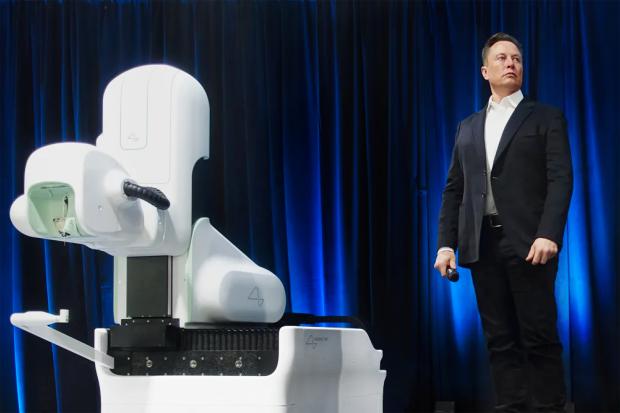
Breaking News
 Powerful Pro-life Ad Set to Air During Super Bowl 'Adoption is an Option' (Video)
Powerful Pro-life Ad Set to Air During Super Bowl 'Adoption is an Option' (Video)
 Even in Winter, the Sun Still Shines in These Citrus Recipes
Even in Winter, the Sun Still Shines in These Citrus Recipes
 Dates: The Ancient Fertility Remedy Modern Medicine Ignores Amid Record Low Birth Rates
Dates: The Ancient Fertility Remedy Modern Medicine Ignores Amid Record Low Birth Rates
 Amazon's $200 Billion Spending Shock Reveals Big Tech's Centralization Crisis
Amazon's $200 Billion Spending Shock Reveals Big Tech's Centralization Crisis
Top Tech News
 SpaceX Authorized to Increase High Speed Internet Download Speeds 5X Through 2026
SpaceX Authorized to Increase High Speed Internet Download Speeds 5X Through 2026
 Space AI is the Key to the Technological Singularity
Space AI is the Key to the Technological Singularity
 Velocitor X-1 eVTOL could be beating the traffic in just a year
Velocitor X-1 eVTOL could be beating the traffic in just a year
 Starlink smasher? China claims world's best high-powered microwave weapon
Starlink smasher? China claims world's best high-powered microwave weapon
 Wood scraps turn 'useless' desert sand into concrete
Wood scraps turn 'useless' desert sand into concrete
 Let's Do a Detailed Review of Zorin -- Is This Good for Ex-Windows Users?
Let's Do a Detailed Review of Zorin -- Is This Good for Ex-Windows Users?
 The World's First Sodium-Ion Battery EV Is A Winter Range Monster
The World's First Sodium-Ion Battery EV Is A Winter Range Monster
 China's CATL 5C Battery Breakthrough will Make Most Combustion Engine Vehicles OBSOLETE
China's CATL 5C Battery Breakthrough will Make Most Combustion Engine Vehicles OBSOLETE
 Study Shows Vaporizing E-Waste Makes it Easy to Recover Precious Metals at 13-Times Lower Costs
Study Shows Vaporizing E-Waste Makes it Easy to Recover Precious Metals at 13-Times Lower Costs
Experts Balking Over Elon Musk's Brain Implants

Soon the coin-shaped devices could allow patients to operate computers using only their thoughts.
But in spite of the never-ending momentum for the world's richest man, scientists are worried about the company's oversight, the potential impact on trial participants, and whether society has meaningfully grappled with the stakes of fusing Big Tech with human brains.
"I don't think there is sufficient public discourse on what the big picture implications of this kind of technology becoming available [are]," said Dr. Karola Kreitmair, assistant professor of medical history and bioethics at the University of Wisconsin-Madison.
"I worry that there's this uncomfortable marriage between a company that is for-profit… and these medical interventions that hopefully are there to help people," she added.
Last week, news broke that Neuralink is hiring a clinical trial director to help manage its first cohort of human patients. (The company has already tested its brain-implants on a monkey and pigs.)
The five-year-old startup's initial aim is to help alleviate certain disabilities, like enabling paralyzed people to control their computers and mobile devices through brain activity. Musk has signaled far larger ambitions down the road, however. He previously outlined his vision to help humans achieve "symbiosis" with artificial intelligence to avoid being "left behind" by machines.

 Smart dust technology...
Smart dust technology...

